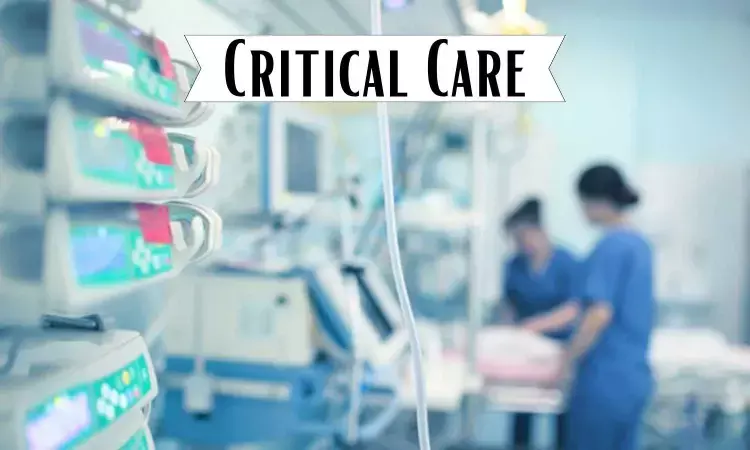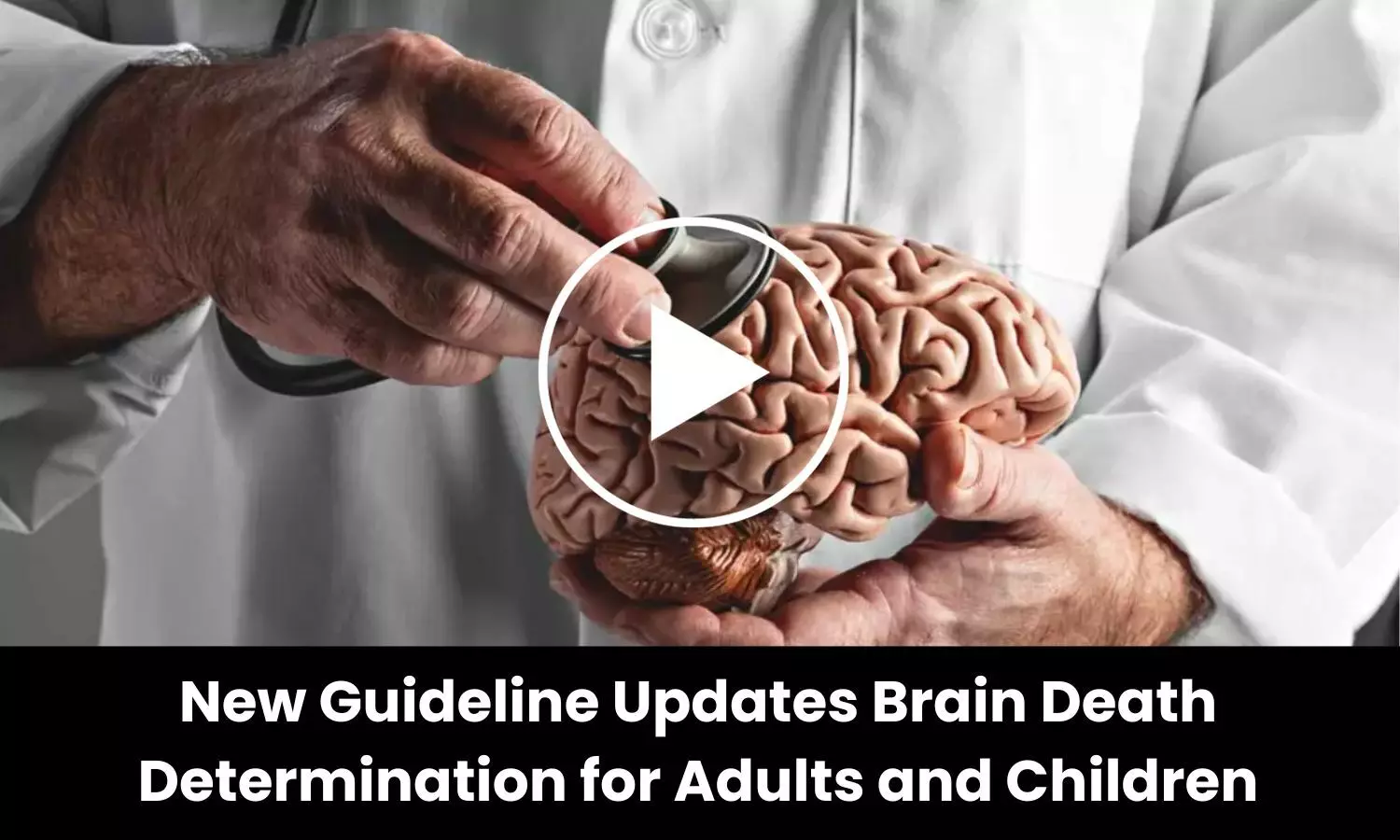- Home
- Medical news & Guidelines
- Anesthesiology
- Cardiology and CTVS
- Critical Care
- Dentistry
- Dermatology
- Diabetes and Endocrinology
- ENT
- Gastroenterology
- Medicine
- Nephrology
- Neurology
- Obstretics-Gynaecology
- Oncology
- Ophthalmology
- Orthopaedics
- Pediatrics-Neonatology
- Psychiatry
- Pulmonology
- Radiology
- Surgery
- Urology
- Laboratory Medicine
- Diet
- Nursing
- Paramedical
- Physiotherapy
- Health news
- Fact Check
- Bone Health Fact Check
- Brain Health Fact Check
- Cancer Related Fact Check
- Child Care Fact Check
- Dental and oral health fact check
- Diabetes and metabolic health fact check
- Diet and Nutrition Fact Check
- Eye and ENT Care Fact Check
- Fitness fact check
- Gut health fact check
- Heart health fact check
- Kidney health fact check
- Medical education fact check
- Men's health fact check
- Respiratory fact check
- Skin and hair care fact check
- Vaccine and Immunization fact check
- Women's health fact check
- AYUSH
- State News
- Andaman and Nicobar Islands
- Andhra Pradesh
- Arunachal Pradesh
- Assam
- Bihar
- Chandigarh
- Chattisgarh
- Dadra and Nagar Haveli
- Daman and Diu
- Delhi
- Goa
- Gujarat
- Haryana
- Himachal Pradesh
- Jammu & Kashmir
- Jharkhand
- Karnataka
- Kerala
- Ladakh
- Lakshadweep
- Madhya Pradesh
- Maharashtra
- Manipur
- Meghalaya
- Mizoram
- Nagaland
- Odisha
- Puducherry
- Punjab
- Rajasthan
- Sikkim
- Tamil Nadu
- Telangana
- Tripura
- Uttar Pradesh
- Uttrakhand
- West Bengal
- Medical Education
- Industry
Piperacillin-Tazobactam combo doesn't increase AKI or mortality risk among critical patients: JAMA

New Critical Care Hospital for Manimajra
In a groundbreaking Antibiotic Choice on Renal Outcomes (ACORN) randomized clinical trial, researchers have evaluated the safety of two commonly prescribed antibiotics, Cefepime and Piperacillin-Tazobactam, often administered to hospitalized adults for the empirical treatment of infections. The study aimed to address long-standing hypotheses about the potential side effects of these antibiotics, particularly focusing on the risk of acute kidney injury and neurological dysfunction. The findings provide valuable insights for clinicians when making treatment decisions.
The trial results were published in the journal JAMA Network.
Cefepime and piperacillin-tazobactam are frequently prescribed to adult patients in hospital settings for empiric treatment of infections. While concerns have arisen about the potential for piperacillin-tazobactam to contribute to acute kidney injury and cefepime to trigger neurological dysfunction, a rigorous comparison of their safety has not yet been examined in a randomized clinical trial. Hence, researchers conducted a randomized clinical trial to determine whether the choice between cefepime and piperacillin-tazobactam affects the risks of acute kidney injury or neurological dysfunction.
The ACORN trial, conducted in an academic medical center in the US, spanned from November 10, 2021, to October 7, 2022. It involved adult patients for whom a clinician ordered antipseudomonal antibiotics within 12 hours of presentation to the hospital in the emergency department or medical intensive care unit. The trial enrolled 2511 patients, with a median age of 58 years. Approximately 42.7% of participants were female, 16.3% were non-Hispanic Black, and 5.4% were Hispanic. The majority, 94.7%, were enrolled in the emergency department, and 77.2% were receiving vancomycin at the time of enrollment.
The primary outcome of the study was the highest stage of acute kidney injury or death by day 14, measured on a 5-level ordinal scale ranging from no acute kidney injury to death. Two secondary outcomes were also examined that included major adverse kidney events at day 14 and the number of days alive and free of delirium and coma within 14 days.
Key Findings:
- The highest level of acute kidney injury or mortality did not exhibit a significant variance between the cefepime and piperacillin-tazobactam groups.
- In the cefepime group, 85 patients (7.0%) experienced stage 3 acute kidney injury, with 7.6% mortality, compared to 97 patients (7.5%) in the piperacillin-tazobactam group with stage 3 acute kidney injury and 6.0% mortality (odds ratio, 0.95 [95% CI, 0.80 to 1.13], P = 0.56).
- Additionally, there was no substantial difference in the incidence of significant adverse kidney events at day 14 between the groups, with 10.2% of patients in the cefepime group and 8.8% in the piperacillin-tazobactam group (absolute difference, 1.4% [95% CI, -1.0% to 3.8%]).
- Notably, patients in the cefepime group experienced fewer days alive and free from delirium and coma within the 14-day period.
- Their mean duration was 11.9 days (SD 4.6), compared to 12.2 days (SD 4.3) in the piperacillin-tazobactam group (odds ratio, 0.79 [95% CI, 0.65 to 0.95])
The ACORN trial's findings have significant implications for the safety and choice of antibiotics in clinical practice. It was revealed that piperacillin-tazobactam did not increase the risk of acute kidney injury or death in hospitalized adults. However, the use of cefepime was associated with a higher incidence of neurological dysfunction, suggesting clinicians need to consider potential neurological side effects when prescribing this antibiotic. These findings underscore the importance of evidence-based decision-making in healthcare and the need for further research to enhance patient safety and treatment effectiveness.
Further reading: Qian ET, Casey JD, Wright A, et al. Cefepime vs Piperacillin-Tazobactam in Adults Hospitalized With Acute Infection: The ACORN Randomized Clinical Trial. JAMA. Published online October 14, 2023. doi:10.1001/jama.2023.20583
BDS, MDS
Dr.Niharika Harsha B (BDS,MDS) completed her BDS from Govt Dental College, Hyderabad and MDS from Dr.NTR University of health sciences(Now Kaloji Rao University). She has 4 years of private dental practice and worked for 2 years as Consultant Oral Radiologist at a Dental Imaging Centre in Hyderabad. She worked as Research Assistant and scientific writer in the development of Oral Anti cancer screening device with her seniors. She has a deep intriguing wish in writing highly engaging, captivating and informative medical content for a wider audience. She can be contacted at editorial@medicaldialogues.in.
Dr Kamal Kant Kohli-MBBS, DTCD- a chest specialist with more than 30 years of practice and a flair for writing clinical articles, Dr Kamal Kant Kohli joined Medical Dialogues as a Chief Editor of Medical News. Besides writing articles, as an editor, he proofreads and verifies all the medical content published on Medical Dialogues including those coming from journals, studies,medical conferences,guidelines etc. Email: drkohli@medicaldialogues.in. Contact no. 011-43720751




